Welcome to Moda Fabrics!
Sewing for Days for Girls
Sewing for Days for Girls
Most quilters are lucky: we’ve got our basic needs met and can spend time (and a little money) on a hobby that brings us pleasure. Quilters don’t hesitate to use that hobby to bring comfort to others. Making something to give to someone else is at the heart of so many sewing projects.
One organization that benefits from the skills of quilters and helps girls and women meet their basic needs is Days for Girls. The organization was founded in 2008 by environmental educator Celeste Mergens. Back in the U.S. after working at an orphanage in Kenya, she realized she’d never asked what products the girls used when they had their periods and was stunned to hear the answer: “Nothing. They wait in their rooms.” She soon realized that girls around the world were missing up to a week of school each month and eventually dropping out, and that women were not able to feed their families because they were missing work, all because of a lack of feminine hygiene products. “Having a basic biological function becomes a devastating handicap,” says Celeste.
Celeste was scheduled to return to the orphanage and she and a group of volunteers started stitching. “Some sewed until their fingertips bled,” says Celeste, but in three weeks they’d stitched reusable pads for all 500 girls. Using input from the girls, Days for Girls (DFG) has honed their designs: each girl now receives a kit containing a colorful cloth drawstring bag that contains a pair of panties, two moisture barrier shields, eight tri-fold pads, two zippered plastic bags, a washcloth, soap, and an instruction sheet. The kits are distributed through organizations like the Peace Corps, Rotary, and educational and church groups. They’ve been distributed on six continents, in more than 60 countries, including in the United States (the New Orleans school district contacted DFG for kits last year).
Sewing events organized by DFG chapters and teams are held around the country, and the world. (Individuals also contribute their efforts to the organization.) We’ve held two DFG sew-ins in my area, a one-day event at Home Ec Workshop and three-day event, held at both Home Ec and Inspirations in Hills, Iowa, for which Moda donated some lovely fabrics. Top quality quilting cottons and flannels are important for DFG items: they hold up to repeated washings (kits will last up to three years). Patterns are useful for hiding stains, and Celeste notes that often these kits are the only thing a girl owns and that like girls everywhere, they appreciate bright, pretty fabrics. It’s easy to imagine the smiles these beautiful Miss Kate, Best. Day. Ever, and Fancy fabrics will bring to girls’ faces.
It isn’t just the girls who benefit from these events. Participants who came to sew pads, attach snaps, and cut out the waterproof PUL fabric are of all ages and backgrounds. There's lots of conversation, laughter, and camaraderie—people come with old friends and make new ones. This project is one that appeals especially to younger women, who identify with the kit’s recipients and the impact that having nothing to use during their periods would have. The classroom at Home Ec Workshop is small and at one point we had 20-plus people elbow-to-elbow, sewing, serging, applying snaps, cutting, talking, and laughing. People came for an hour or stayed all afternoon—some were shop regulars, while others were first-time visitors: nearly 50 volunteers came on one or more days.
At the end of our three-day sew-in, participants had created 134 bags, 886 liners, and 433 shields. The satisfaction they felt was clear: people asked to be notified of other sew-ins and many said they’d love to get together monthly.
And the need, of course, is ongoing. As DFG founder Celeste Mergens notes, whenever a family has to choose between buying food or buying feminine hygiene products, food always wins. Celeste admits that she never imagined she’d spend her days talking to people about menstruation. But she also never imagined that something so simple could provide dignity and help break the cycle of poverty for girls and women worldwide. “We all deserve to have what we need for our basic biological functions, and if we don’t it affects how we feel about ourselves,” she says. “These pieces of fabric literally transform lives and help women and girls say ‘I have value.’”
For more information about Days for Girls and having a sew-in, visit their website www.daysforgirls.org

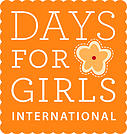
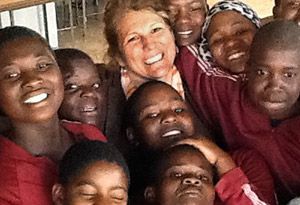
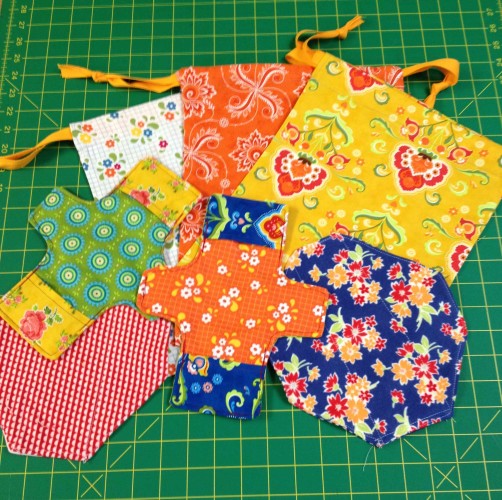
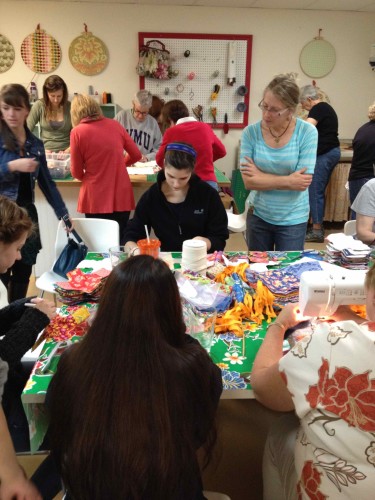
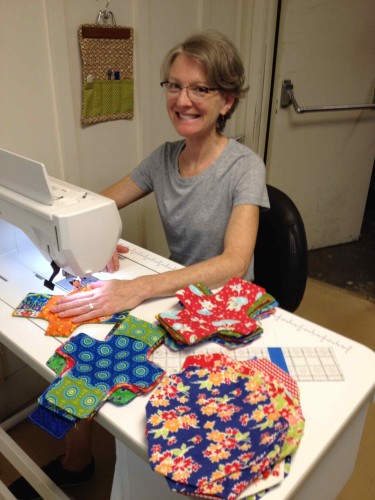
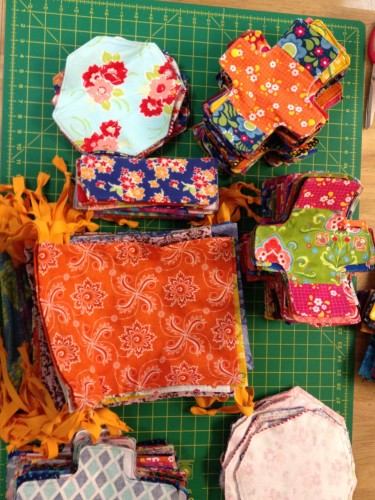
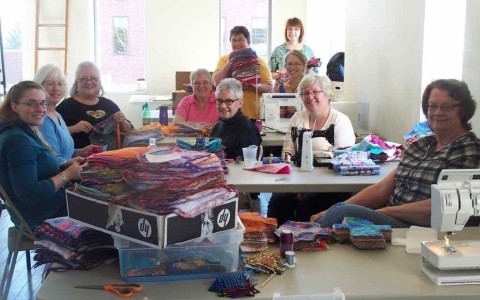

Comments